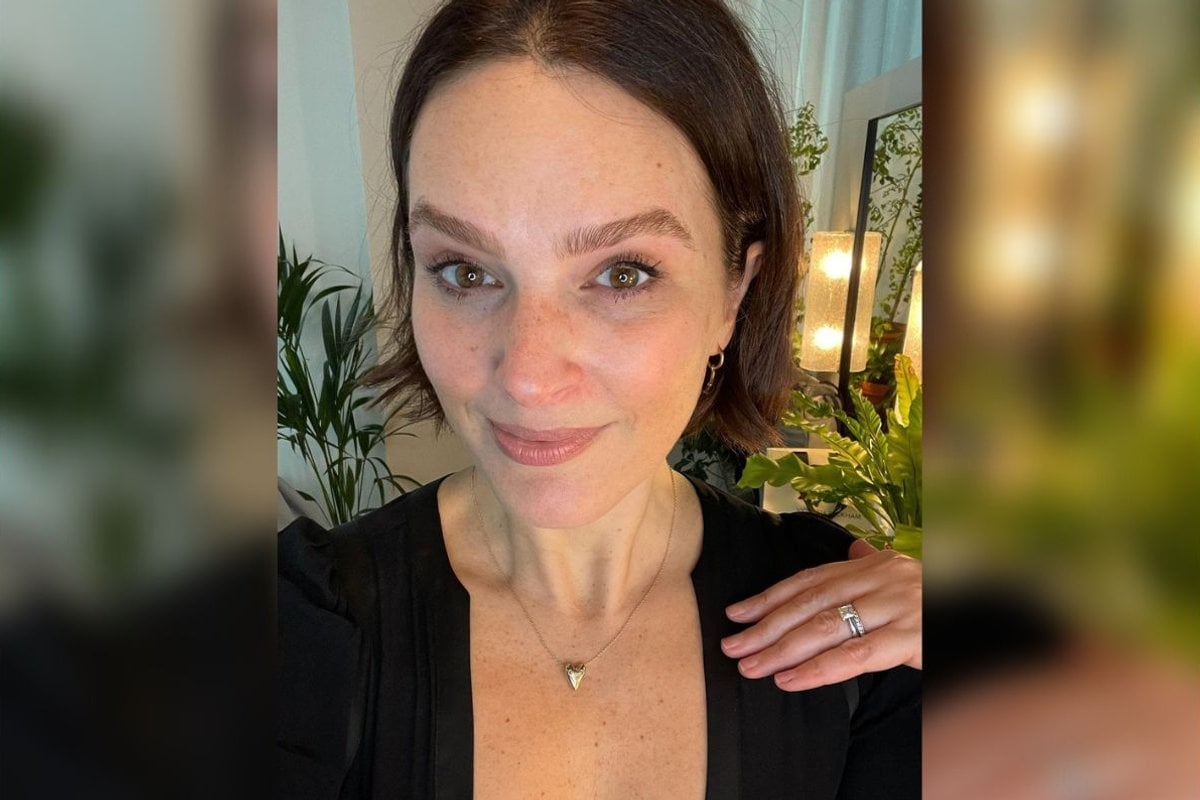
As Elizabeth Day stared down the barrel of turning 40 years old, she had a realisation.
She was single. Again.
A few years prior, she'd been married to another journalist. But after three years, two failed cycles of in-vitro fertilisation, she ended her marriage along with her desire for biological children.
She'd found love again with a man nine years younger than her but a few days before her 40th, he broke it off.
Day felt like a failure.
But what she did have, in the dozens, was a lot of friends. In fact, too many.
Speaking on Mamamia's No Filter podcast, Day recalled the moment she knew she needed to blow up her life.
Watch a snippet of Elizabeth Day's conversation with Mia Freedman on Mamamia's No Filter. Post continues after video.
The moment came to her when the pandemic hit in 2020.
"Our diaries emptied overnight," the journalist said. "When that happened to me, I was confronted by the truth of how I've been spending my time and I realised that I'd spent all of my time trying to meet the demands of people who I often liked but didn't know that well."




























































































